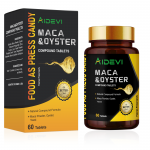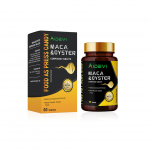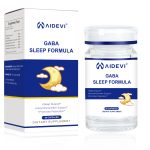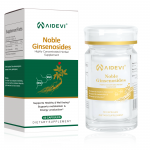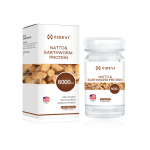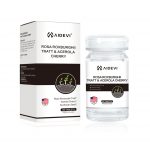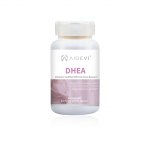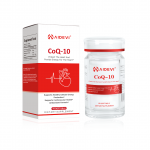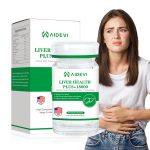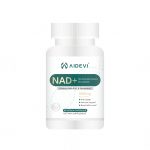FAQ of Probiotics
Q1: How Probiotics Can Improve Your Well-being?
Your gut is a crucial part of your immune system. It's where over 70% of your immune cells, including important players like macrophages, T cells, NK cells, and B cells, reside. What's more, over 70% of your immunoglobulin A (IgA), an essential immune protein, is made in your gut. This shows how closely connected your gut's microbial community and your immune system are.
For most people, probiotics can provide a range of advantages. These include:
Boosting the Immune System: Probiotics can strengthen your immune system, helping you fend off illnesses.
Maintaining Digestive Health: They help keep your digestive system in good shape.
Reducing Side Effects of Antibiotics: If you've taken antibiotics, probiotics can help minimize their negative effects.
Easing Digestive Discomfort: Probiotics can relieve issues like bloating and indigestion.
Enhancing Resistance to Infections: They can make you more resistant to infections like the common cold.
Improving Lactose Absorption: Probiotics help your body digest lactose more effectively.
Some additional benefits of probiotics include their ability to help with both diarrhea and constipation, reduce eczema in infants, and ease colic in babies.
Q2: Why Should Kids Take Probiotics?
Research has shown that there's a natural "microbial connection" between mothers and their babies. During childbirth, the baby inherits some of the healthy gut bacteria from the mother.
However, the use of antibiotics, C-section deliveries, and not breastfeeding can disrupt this transfer of beneficial bacteria from the mother to the baby. This can lead to a less diverse gut microbiome in the baby and various health issues.
It's important to establish a diverse gut microbiome in babies early on because it can protect them from infections, allergies, and digestive problems. Even after the age of 2, a child's gut microbiome is still vulnerable to external factors, like changes in diet when transitioning to solid foods, which can upset the balance of gut bacteria.
Furthermore, children have an immature immune system, which makes them more prone to infections, allergies, and other immune-related issues.
That's why giving children probiotics early can help boost their immune system, improve their appetite, enhance nutrient absorption, and alleviate digestive problems, such as constipation, diarrhea, and lactose intolerance.
Kids, especially those born via C-section, premature babies, formula-fed babies, and children who have taken antibiotics, should consider taking probiotics to support their health.
Q3: The Benefits of Probiotics for Pregnant and Breastfeeding Mothers
As mentioned earlier, probiotics can strengthen the immune system. The strength of a pregnant woman's immune system directly affects her baby's immunity. Strengthening the immune system during pregnancy can lay the foundation for the baby's immune system and help prevent conditions like eczema and asthma.
Breastfeeding mothers who take probiotics can increase the levels of essential immune factors in their breast milk. This boosts the immune protection provided by breast milk and reduces health issues in the baby due to immune imbalances.
Pregnant women often experience changes in their digestive system, making them more prone to conditions like constipation and indigestion. Probiotics can help improve regular bowel movements and alleviate these symptoms.
Q4: How Probiotics Support the Immune System?
Probiotics help regulate the immune system in several ways:
Boosting Specific and Non-Specific Immune Functions: Probiotics strengthen the body's specific and general defenses in the intestines, protecting against infections and immune-related diseases.
Increasing the Production of SIgA: Probiotics stimulate the production of secretory IgA (SIgA), which helps the body eliminate harmful microorganisms and potential allergens. This reinforces the intestinal immune barrier.
Balancing Immune Responses: Probiotics promote a balanced development of immune responses. This is especially important for children to prevent immune issues caused by imbalances.
Q5: How Probiotics Help with Diarrhea?
Probiotics can reduce the occurrence of diarrhea and alleviate its symptoms through the following mechanisms:
Strengthening the Gut Barrier: Probiotics enhance the protective barrier in the intestines, which maintains a healthy gut environment. This discourages harmful bacteria, competes for nutrients, and occupies space in the intestines, effectively preventing these bacteria from adhering to the intestinal walls.
Increasing SIgA Production: Probiotics stimulate the production of SIgA, which binds to pathogens and allergens, preventing them from adhering to cell surfaces. This strengthens the gut's immune defense, helping the body eliminate pathogens and allergens.
Producing Lactase: Probiotics produce lactase, an enzyme that helps with lactose digestion. This can alleviate symptoms of lactose intolerance, such as bloating and diarrhea. Consequently, probiotics can assist in relieving infectious diarrhea, diarrhea caused by antibiotics, and diarrhea related to lactose intolerance.

Q6: How Probiotics Relieve Constipation?
Probiotics help relieve constipation by forming a protective microbial layer in the gut that attaches to intestinal cells, acting as a barrier against harmful invading bacteria. They also produce organic acids that reduce the intestinal pH level, promote normal bowel movements, and relieve constipation.
To get the most out of probiotics, it's a good idea to stay physically active, drink plenty of water, and include fiber-rich foods like vegetables, fruits, and whole grains in your diet. If severe and chronic constipation persists, it's essential to rule out underlying gastrointestinal disorders.
Q7: How Can Probiotics Help with Digestive Issues?
Digestive problems often arise from improper eating habits, such as overeating or consuming the wrong foods. When food isn't properly digested and absorbed, it can linger in the upper part of the small intestine, leading to the growth of harmful bacteria that cause the food to ferment and decay. This can result in symptoms like acidic-smelling stools, white curds and foam in the stool, and mild stomach pain. In severe cases, it can even progress to diarrhea.
Babies and young children have less developed digestive enzymes and a weaker digestive and absorptive capacity compared to adults. Their enzyme secretion is also more susceptible to hot weather and illnesses, making them prone to digestive issues. For example, lactase deficiency is a common digestive enzyme deficiency in infants and young children.
Probiotics produce lactic acid, acetic acid, and other organic acids during their metabolic processes. These substances help lower the pH in the intestines, inhibiting the growth of harmful bacteria and preventing food from fermenting and decaying. As a result, probiotics can relieve abdominal pain during digestive issues and help prevent them from developing into diarrhea. Probiotics also secrete lactase, an enzyme that aids in lactose digestion, reducing bloating and diarrhea caused by lactose intolerance.
Q8: How Do Probiotics Ease Allergic Symptoms like Eczema?
Changes in the gut microbiota in children can be influenced by the method of delivery at birth. For instance, infants born via C-section are more prone to allergies, such as eczema, compared to those born naturally. This can be attributed to alterations in the gut microbiota.
During a natural birth, infants come into contact with their mother's vagina and skin, which helps beneficial probiotic species from the mother's body settle in the infant's gut. This interaction encourages the development of a Th1-biased immune response, which reduces the likelihood of allergies. In infants born via C-section, the exposure to the mother's bacteria is less, and they are exposed to bacteria in the hospital environment, which doesn't induce the same immune response.
Q9: Can Probiotics Be Taken Long-Term? Do They Have Side Effects?
To date, there haven't been any observations of infections or toxic reactions in the digestive system due to resident or transient bacteria, such as common bifidobacteria and lactic acid bacteria. These bacteria are commonly found in fermented foods and are considered safe without any side effects on the human body.
Moreover, people often include probiotics in their diets as part of food or dietary supplements based on their dietary and health needs. Experience has shown that consuming probiotics is beneficial for human health, as seen with foods like sauerkraut and natto, among others.
It's recommended to continue taking probiotics for 12 weeks and then reduce the intake by half for economical reasons while maintaining the benefits. This routine can be continued for about six months to a year for most people, as it helps optimize the effects of probiotics and ensures their benefits last for some time after discontinuation.
Q10: For optimal probiotic supplementation, some suggestions include:
Mothers and Babies Should Take Probiotics Together: Mothers should start taking probiotics during pregnancy to adjust their gut microbiota, which helps prevent constipation, strengthen intestinal immunity, reduce gynecological diseases, prevent premature birth, and protect newborns from infection.
Take Probiotics After Meals for Best Results: The stomach's normal acidic pH, which is around 1.8, isn't conducive to probiotic survival. Taking probiotics 30 minutes to an hour after a meal, when stomach acid secretion is reduced and there is food in the stomach to neutralize it, is more effective.
Wait at Least 2 Hours After Using Antibiotics Before Taking Probiotics: Antibiotics can kill probiotics, so it's best to wait at least 2 hours after taking antibiotics to reduce the side effects associated with them, such as antibiotic-induced diarrhea and vomiting.
Consume Probiotics with Warm Water: Probiotics are sensitive to high temperatures. Therefore, when dissolving probiotics, make sure the water temperature doesn't exceed 40°C (104°F). Consume the probiotics within half an hour after dissolving, as they shouldn't be stored for an extended period.





